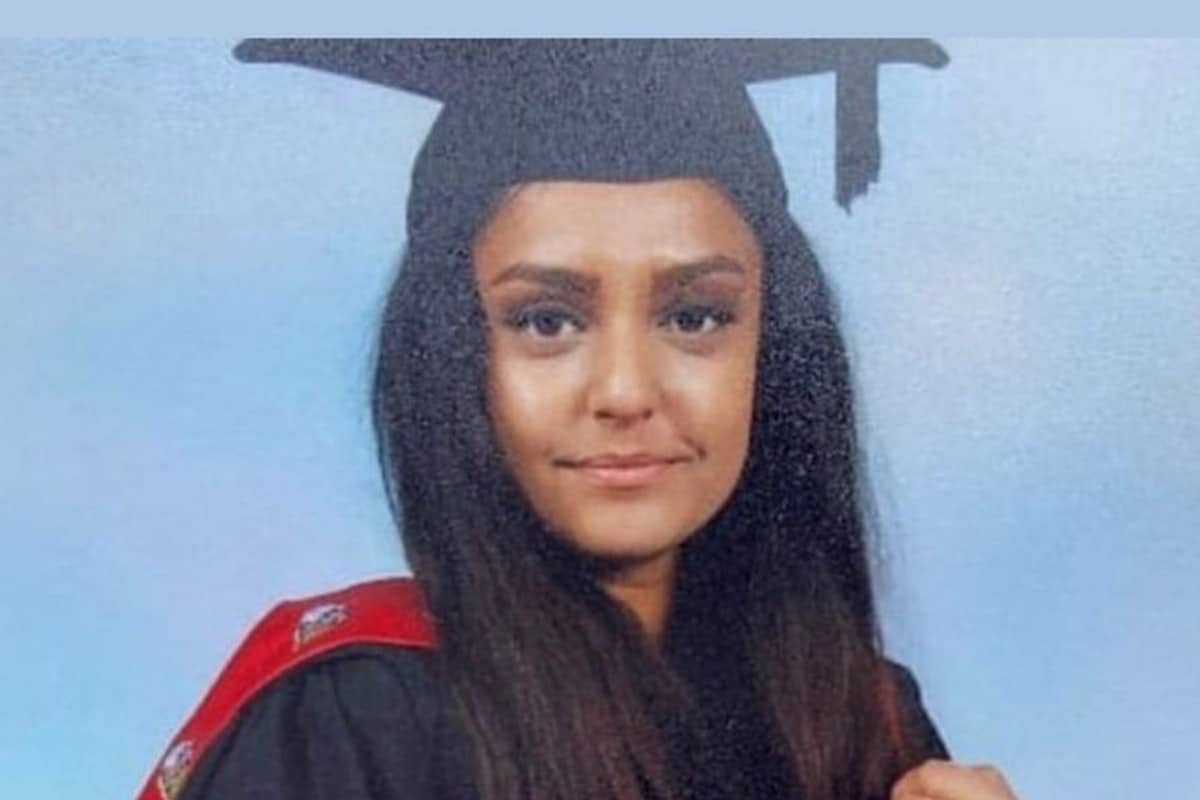
On the evening of September 17, primary school teacher Sabina Nessa left her home in south London and never returned. The 28-year-old was due to meet her friend at a local pub – a short five-minute walk through a nearby park to her destination. It wasn't late, she wasn't alone and she was in a public space. The following afternoon, her body was found in that same park; her case yet another harrowing and untimely death.
Nessa's murder was just six months after the world collectively mourned the kidnapping, rape and murder of 33-year-old marketing executive Sarah Everard in south London. A month after her death, Wayne Couzens – an off-duty police officer – admitted to her murder. Earlier this month on September 1, Brian Laundrie returned home to Florida without his fiancé Gabby Petito; 19 days later, her body was discovered within a campsite area in Wyoming's Grand Teton National Park.
The deaths of Everard, Petito and Nessa represent just a small percentage of the number of women who are either reported missing or are victims of violent crimes every day. Following these three, largely-publicised events; it comes as no surprise that the concern for women's safety and public outcries for action have never been louder. In the UK alone, the Crime Survey for England and Wales released in July 2021 found that in the last 12 months to March 2020, 1.6 million women experienced domestic abuse, as well as the 153,136 rape and other sexual offences recorded by police; where 84% of the victims were female.
Again, we find ourselves asking the same question time and time again. What will it take for this culture of harassment, abuse and violence towards women (and queer folk), to be given the attention it deserves? Below, we're sharing everything we know so far about the Sabina Nessa case; including the man who has been charged and why her death wasn't given the same coverage.
Where was Sabina Nessa last seen and where was she going?
On Friday, September 17, Nessa left her home at around 8.30pm; with plans to meet a friend at The Depot bar in Kidbrooke’s Pegler Square. The pub is a short, five-minute walk through the local Cator Park, but as we now know, she never showed. The following afternoon, a dog walker discovered her body hidden under a pile of leaves near a community centre in the same park – barely minutes from her flat.
View this post on Instagram
Last Friday night, a vigil was held in memory of Nessa in Pegler Square; with a book of condolence also opened in the One Space community centre. At the vigil, Nessa's sister, Jebina Yasmin Islam, spoke emotionally to the more than 500 people who attended, sharing; "Words cannot describe how we are feeling. This feels like we are stuck in a bad dream and can’t get out of it. Our world is shattered. No family should go through what we’re going through.”
A man has been charged and appeared in court
During the early hours of Sunday, September 18, police arrested and charged 36-year-old Koci Selamaj, in Eastbourne, East Sussex. Yesterday (September 27), Selamaj appeared at Willesden Magistrates' Court; where reports have confirmed that he and his lawyer, Aidan Harvey, intended to plead not guilty. Presently, neither police or prosecutors have provided any details of how Nessa was killed or any possible motive for the attack. It has been confirmed by British media that Selamaj is a former pizza delivery driver; but little else is known about his background.
Why did it take so long for the world to find out about Nessa's disappearance?
Unlike both Everard and Petito, Nessa's case has served as yet another difficult reminder that when it comes to the disappearance and murder of women of colour, the mainstream media almost always fails to act – until provoked. Last year alone, almost 100,000 women of colour went missing across the globe; and as has been highlighted in the wake of Nessa's murder, the media tends to decide which lives are deemed 'grievable' and which are not. And as you can image, white women take precedence.
As tends to be the case in most crimes committed against POC; social media and Twitter specifically became a source of information and a place to hold the mainstream media accountable. #Sayhername has again become an invaluable platform in not only the conversation around violence against women, but has made it impossible for traditional media to ignore the Sabina Nessa case any longer.
A brilliant young teacher killed by male violence in London - yet hardly any response.
BBC's front page covers an American blogger & a woman who slept with the PM. But not this.
Do only white women's lives matter? #SabinaNessa https://t.co/1NHhCCIoMb
— Victoria Bleazard (@VictoriBleazard) September 22, 2021
#SabinaNessa was a talented young school teacher before she was killed by a man in a London park.
Violence against any woman is abhorrent. But what is also abhorrent is the minimal coverage and outcry when it comes to the lives of women of colour.https://t.co/na5E9lro1L
— Omid Scobie (@scobie) September 22, 2021
This tiny piece on page 6 of today's Metro is all that's given to the death of #SabinaNessa. Cannot comprehend this. Such little coverage can only be down to the ethnicity of the victim. So wrong pic.twitter.com/0NWXvJLxuj
— Michael Malcolm (@CommonwealthCBC) September 22, 2021
Image: Instagram



